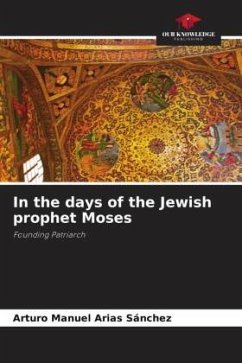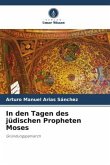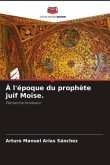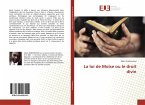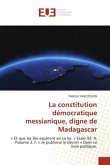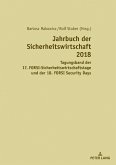The nationalist work of Moses (XIV-XIII centuries b.n.e.?) can be called the hero of the Hebrew nation or also, why not, the original founding father. His essential juridical work is embodied in the first five books (Pentateuch) of the Bible, in his Old Testament, whose dictates reveal the interweaving of religion with law, where the former prevails over the latter. Of the five books of Moses, Exodus, Leviticus and Deuteronomy stand out in legal matters. The Christian world, and the non-Christian (Talmudic or Islamic) world as well, knows the Ten Commandments or apodictic law of the Pentateuch, unconditionally admitted by its faithful. The Mosaic casuistic legislative production gathers, in the institutional fields of law, diverse facets: slavery, violence, civil and penal responsibility, sanctions, religious rites, family, war, incest, among others.Certainly, Moses survived, not only death as a Hebrew male condemned by the Egyptian king and the waters of the Nile, on which he was deposited in a reed basket, but also the unknown of the times thanks to his legislative work.
Bitte wählen Sie Ihr Anliegen aus.
Rechnungen
Retourenschein anfordern
Bestellstatus
Storno

